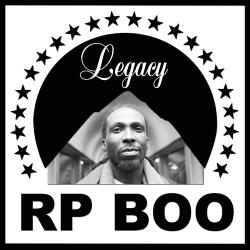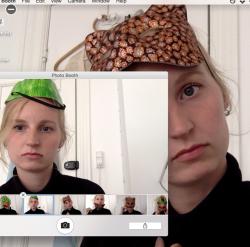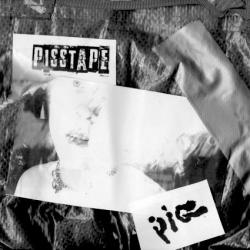Lafayette Anticipation associate curator Anna Colin talks to artist Tyler Coburn about Ergonomic Futures, a speculative project engaged with art, design, science, anthropology and writing. In this interview, Coburn discusses the research, production process and network of collaborators of a multilayered project ultimately concerned with the futures of humankind. Anna Colin: When one comes across your museum seats Ergonomic Futures (2016—) in contemporary art exhibitions—and soon in natural history, fine art, and anthropology museums—they look… [read more »]
Film Fun: Us and the box office
A long time ago, in a suburb far, far away, I was a closeted teen, reading the copy of Entertainment Weekly my dad brought home from the office, assessing the box office performance of 8 Mile and quietly predicting to myself what percentage it would drop in its second weekend. As it turns out, I wasn’t alone.
For that little cinefag inside us all, Film Fun is a place where it can run free. The website/platform/cultural review is the bi-coastal lovechild of two best friends, Keaton Ventura and Mike Spreter. Their pieces range from helpful to profound and read like love letters to movies and our relationships with them: how they make us feel and why we considered going to them with our families over Christmas break or forgot about them because of overcrowded release schedules.
How familiar are you with the post-Shrek cultural landscape? The answer is very familiar, even if you don’t know it yet.
Mike and Keaton sat down with me over a raucous skype session to DIScuss their feelings about movies—and each other.
Don’t forget to read Film Fun’s latest post, Keep Girls Alive!
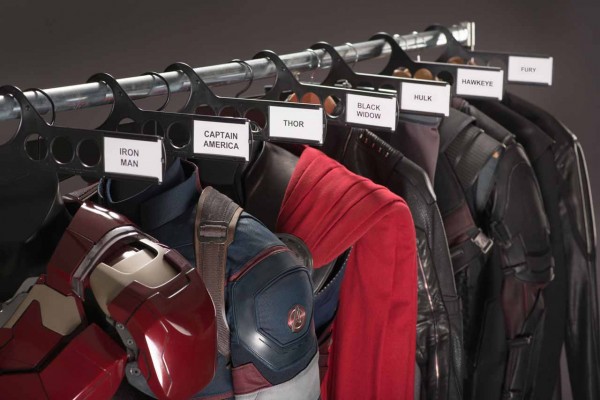
Steven Phillips-Horst: In one your very first pieces, your “Tools,” you say something that became a manifesto of sorts: “Be proud of movies regardless of their box office performance.” Is that saying that movies are like our children?
Keaton Ventura: I don’t think we’d call movies our children exactly, although sometimes it turns out to be the case. For instance by the fifth or sixth Harry Potter movie, that franchise had become our child, even if we were co-parenting each installment with all of its predecessors. At the same time we’re not expected to be faithful when Twilight offers us a glass of red wine. “Be proud of movies regardless of their box office performance” isn’t to separate out the box office performance itself, but our first step in separating out this industrial, studio approach of looking at how much money something made, in order to find a more interpersonal approach for looking at it.
SPH: Are studios these hyper-cynical moneymaking machines, while movies are products that they push out like prostitutes with souls that the studios profits off ignoring? Is it up to people to remember that soul, take care of it, and let it live beyond the theater?
KV: That kind of reception of a movie, and things like cult status, becomes an economy of its own that can turn out to be just as cynical. It’s not so much that responsibility that we’re interested in, but instead using resources like box office statistics to orient yourself with the rest of the moviegoing population, or disorient yourself. To someone who saw Furious 7 on its opening weekend, it might feel like that experience is at least on par with the opening weekend gross of The Avengers, but the reported truth is The Avengers opened to $60 million more. It’s as much about letting that inform you as it asks you to instill your own feelings into box office reporting. Fuck it, believe Furious 7 outgrossed The Avengers if you want. That strategy actually has a lot less to do with the movies themselves, but what it initially does is relieve some of the pressure around interacting with them.
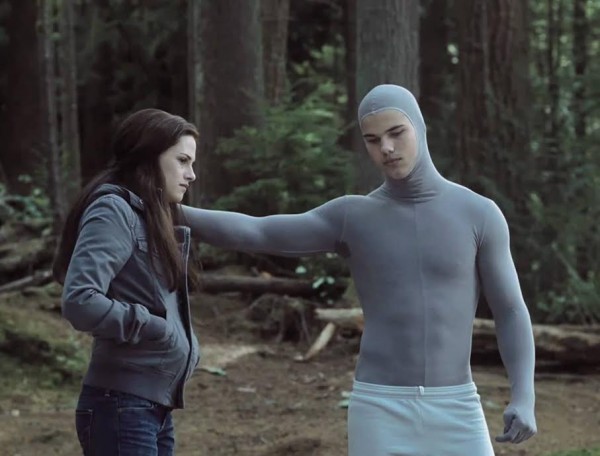
Mike Spreter: It connects you to the experiences that you were having at that time, different people you knew. It’s like family that way. Doubling back to a forced tradition could be your best shot at opening the next level.
SPH: I think about [The Avengers:] Age of Ultron as the height of cynicism, a movie that exists only because of this universe of comic book movies—Captain America, Thor,—that is all just feeder films looping back to the inevitable The Avengers.
MS: We actually have no idea how little money Age of Ultron really made. Friday at noon, the day of its release, if you were looking at the people jumping the gun on reporting ticket sales, they were in the headspace that it could easily hit $280-300 million opening weekend. [It eventually made $191 million.] The estimates were all over the place. It was kind of beautiful to see what everyone’s conception of what reality could be.
SPH: This actually speaks to why Film Fun is so creative for me. When I was in high school, I remember emailing myself my own predictions for the The Matrix Reloaded’s opening weekend, at my Yahoo email. What I also like about Film Fun is it’s so celebratory that it doesn’t seem like you’re trolling anyone.

MS: Ultimately we’re just trolling ourselves. Film Fun is really as much of a measure of the distance between Keaton and I, literally speaking, as it is about anything else.
SPH: You have this interesting piece about old movies [simply titled Arugula], and when I read it, I remember thinking, I hate old movies. Do we all hate old movies? And is anyone who says they like old movies sexless and/or lying?
MS: I don’t think we know the answer to that, but one of the big things that Film Fun is interested in exploring is: what experiences of these different artificial groupings of movies, movies that we’ve literally exiled in our heads, could we gain access to by being more honest about our relationships with them? I don’t watch Yojimbo because the expectations around meeting it are this big, fuzzy burden before I even shake its hand. What does it take for Keaton and I to press play on White Christmas the week before Christmas, and watch it back to back with Love Actually, the choice we’d usually make?

SPH: Is there anything that could make me do that?
KV: We actually did that and thought it was like eating a whole bowl of arugula, hence the title. Or being at a restaurant and getting smacked with some garnish you have never even ordered.
SPH: Oh, that’s where that comes from. I really wanted to clarify that, since I couldn’t get past that [the characters in the piece] would confuse romaine and arugula. Those leaves are so diametrically opposed.
KV: But does the opening scene of The Ring [which is referenced to in the piece], and the two first victims involved, recognize the difference between safety and danger? They don’t, and it’s only to drive the movie to where it needs to go: Naomi Watts as this beautiful figure standing out on a balcony, thinking about the last 7 days of her life. That’s just our plot device: confuse the lettuce and get our characters back into their bedroom to die by arugula, in order to taste the old film crackle that’s served with every selection in the classics category on Netflix.

MS: The confusion is dramatically necessary. It’s one of the things I think Film Fun believes in the most. There can be things that don’t emerge necessarily organically out of the story that are allowed to just exist there because it feels right for them to exist there. It’s not auteurism… I guess if auteurism dwells on the idea of subconscious decisions, we’re talking pre-conscious. People enjoy talking about how “the movies” underestimate our intelligence. I think we’re more curious about when or why they underestimate our empathy.
SPH: Do you think film criticism is depersonalized or over-personalized? Critics now don’t talk about their relationship to movies, they’re busy trying to approximate what the one cultural or political narrative is to communicate about the movie.
MS: I don’t know if it’s depersonalized but the stakes of reading a film review feel really low relative to the stakes of going to see the movie. They rarely speak to your theatrical experience or contextualize something in a nice, unexpected way. Obviously there are so many voices and places to read reviews, that it makes them seem interchangeable. One of the first steps is recognizing that interchangeability and playing with it.

KV: The type of movie review that most people ever share with each other is just saying that they’ve seen the movie. That’s worth a lot actually.
SPH: Do you have favorite movie critics? Or do they all suck?
MS/KV: Roger Ebert.
MS: One of his works might have inspired all of Film Fun: “The Great Movies.”
SPH: Is “The Great Movies” just him looking at universal, big budget movies that everyone can get behind?

KV: He wrote very loving, almost epistolary articles as if he were already dead. Explaining E.T. to his granddaughter, for instance, in such a way that it made sense however many years later. If he had only a few words to explain E.T. to a young girl, at the time of his death. It reminds you that no matter how cynical you are or how much of a critic you are, you’re just a film lover.
SPH: Let’s say Film Fun started at 10 theaters, that this is limited release. Do you ever see yourself at 4,000 theaters?
MS: Sure. We especially want to expand the original visual content of the site, and we’re gonna do some things with audio that will hopefully feel very immediate and erotic. I think our general approach is taking ideas that are casually embedded in the articles we’ve written so far and blowing them up into other things, in the style of a movie franchise. We’re interested in creating a lore that way.
KV: Film Fun wants to become one of the movies that it’s talking about.

SPH: Film Fun, and movies, are both so full of dreams and expectations, promise and hope. Either they want you to go with your lover, or they want you to go with your mom and cry, or they want you to go with 60 of your girlfriends on opening night.
KV: Roger Ebert always said, “I’ll see you at the movies,” and I think we’re still trying to figure out exactly where that is.






















